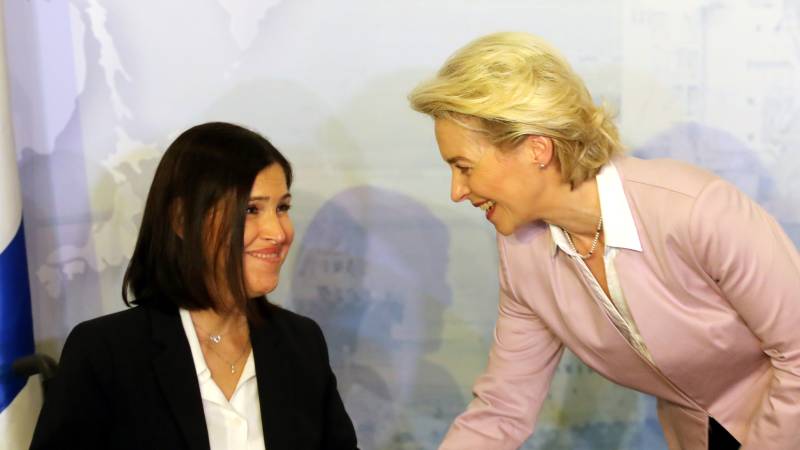In search of alternatives to Russian natural gas, the European Union today signed an agreement with Israel and Egypt. In the next three years, the European Union will buy Israeli gas for the first time, which will be transported to Europe via Egypt.
The war in Ukraine is the direct cause of the gas deal. “We want to get rid of dependence on Russia,” European Commission President Ursula von der Leyen said at today’s signing ceremony. She traveled to the Egyptian capital, Cairo, where an Israeli delegation was also present.
The exact amount of gas involved has not been disclosed. But it won’t be in huge quantities, as Rem Kortewig of the Clingendael Research Institute suspects: “Israel’s capacity is limited. For the EU, it’s down to every little bit of help.”
Under the agreement, Israeli gas will flow to Egypt via a pipeline. There it is converted into liquefied natural gas (LNG) and transported by ship to European ports. Both parties have the option to extend the contract for another two years after three years.
Gas supply gap
EU countries are still largely dependent on Russian natural gas, but this must change† Within a year, the EU wants to reduce imports from Russia by two-thirds, and within five years the member states should completely get rid of Russian gas.
This leaves a gap in the gas supply. The European Union imports 155 billion cubic meters of gas from Russia each year, or 40% of all European gas consumption. By comparison, Israel exports less than 10 billion cubic meters of gas annually.
Therefore, Israel is not the only country that Europe hopes to deal with. For example, US President Biden promised to supply the European Union with 15 billion cubic meters of gas this year, al Is there any doubt Whether he can fulfill that promise. European countries have also sought rapprochement with gas suppliers such as Qatar and Algeria. “In this sense, an agreement was expected with Israel and Egypt,” said expert Rem Korteweg.
In Israel, the gas deal is welcome. “This is a wonderful moment as little Israel becomes a major player in the global energy market,” Energy Minister Karen El Harar said at the signing.
opportunity for Israel
For Israel, this is an economic and diplomatic opportunity, Korteweg sees: “The Israelis always had to compete with cheaper Russian gas, but now they can position themselves as a serious energy supplier. Moreover, it is a way to put themselves in the spotlight in a different way. Not about occupation of Palestinian lands, but as a savior.”
Israeli experts see these benefits, too. “The reason is sad, of course, because of the war in Ukraine, but for Israel, this is good news,” said energy consultant Gina Cohen. “It will not only bring money to Israel, but it will also bring better relations with the European Union. And Israel may benefit from European technology.”
At the moment, Israel only exports gas to Jordan and Egypt, two countries with which it has peace treaties decades ago. The gas will come from two offshore fields in the Mediterranean, and a third platform is under construction.
At the end of last year, Israel announced that it does not want to further search for new gas fields, but the situation has changed dramatically due to the war in Ukraine and high prices. “With this gas deal, it becomes more interesting to investigate whether we can extract more gas from the ground,” said Israeli gas expert Michael Harari. We may even be able to breathe new life into a pipeline project between Israel and Europe.
Israel signed earlier an agreement With Cyprus and Greece on this pipeline, but these plans have not yet begun. Turkey, among other countries, opposed the project. The pipeline will pass through parts of the Mediterranean that Turkey considers its territory, although these claims are not internationally recognized. At the beginning of this year, the United States also withdrew from the pipeline construction project.







